[Editorial] 12 Ghouls of Christmas: Krampus (2015)
Krampus and the Danger in Making Memories
Christmas is a time to make memories. Or at least that’s what we’re told. Every year when the calendar reaches its final page, we put on our tastefully coordinated sweaters and pose in front of rustic backdrops hoping to capture the perfect holiday photo. Christmas is supposedly a time of rest and celebration with family and friends, but recently, the “most wonderful time of the year” seems to have morphed into a season of impossible expectations and performative joy. Throughout the month of December, we run ourselves ragged creating idealized memories to preserve as proof of our happiness until the season rolls around again. Sometimes the pressure to appear festive is so great that we become consumed with creating visions of perfection and lose the ability to truly enjoy the holiday. Though ostensibly about a malevolent entity who punishes naughty children on Christmas, Michael Dougherty’s 2015 film Krampus explores the dangers of trading authentic happiness for superficial memories.
Krampus opens with an elegant wreath framing scenes from a store filled with holiday shoppers. Bing Crosby’s classic “It’s Beginning to Look a Lot Like Christmas.” describes idealized sights of the season as a montage of holiday shopping confronts us with reality. Customers barrel through the doors, trampling store employees and ripping toys from each other’s hands. Exhausted cashiers wearing festive attire take money from stressed out patrons stretched beyond their means. A child sits on Santa’s lap screaming for parents. They encourage her to smile for the camera though she’s clearly uncomfortable in the arms of a stranger. It’s a brutal reflection of what the holiday has become, a desperate need to display perfection no matter the cost.
Max (Emjay Anthony) is a young boy determined to preserve the spirit of Christmas despite the fact that his family only seems interested in going through the motions. In the days leading up to the holiday, he picks a fight with another kid threatening to spill the beans about Santa and complains that no one wants to wrap presents with him. His grandmother Omi (Krista Stadler) is the only one willing to share in his holiday cheer. Max’s mother Sarah (Toni Collette) is obsessed with creating perfect Christmas memories. Consumed with how her family looks, she painstakingly cultivates an idyllic holiday home in order to prove that she is a good mother and to fill the emptiness she now feels in her house. She forces her family to take a traditional picture with Santa so that she can hang an unbroken string of holiday portraits on the wall. But this year’s photo captures the reality of her family’s disinterest along with a leering Santa. It's a hilarious moment to remember, but one she views as evidence of her failure. This photo stands in contrast to the cherished homemade ornament where imperfectly painted popsicle sticks frame a childhood snapshot of herself and her sister. One of these photos will stand the test of time sparking feelings of joy, while the other will only bring feelings of shame and resentment.
Often the need to create perfect memories can cause us to lose sight of the world around us. Omi is spending the days before Christmas baking treats for her family. Gingerbread men, cookies, cakes, and confections line the counter in various states of disarray. Though messy, each treat represents an act of love and sacrifice. When Max’s father Tom (Adam Scott) arrives home, he informs his mother that Sarah has already bought cookies from the store. He reminds Omi not to work too hard, missing the fact that her baking is a labor of love and at least half the point of the gift. Sarah would rather have perfect holiday cookies than this gift of service from her mother-in-law. Though it’s understandable that Sarah would not want to bake cookies herself, this dismissal of Omi’s hard work shows a disconnect in what the holiday means to each member of the family.
Another symbol of Sarah’s need for holiday perfection is the lavish meal she’s prepared. While technically perfect, her family is vocally uncomfortable with the pretentious menu. Sarah has even gone so far as to make individual creme brulees for her family, but rather than enjoy the fruits of her labor, they complain and sling backhanded compliments. While her family’s comments are incredibly rude, they’re also a mirror of Tom’s dismissal of his mother’s’ homemade treats and evidence that Sarah has created the Christmas celebration she wants, but not one that represents the rest of her family. Perhaps this disconnect reveals a hidden resentment at being solely burdened with preparing for Christmas due to her husband’s work travel. Or maybe Sarah believes the extravagant meal will impress her family and keep them from seeing the emptiness creeping into her marriage. Either way, in her search for holiday perfection, what she’s actually provided is discord and stress.
Although the horror doesn’t kick in until midway through the film, it could be argued that Krampus’s first act contains elements of Home Invasion Horror. Invited but unwanted, Sarah's sister Linda (Allison Tolman) and her husband Howard (David Koechner) burst in with their four children, overwhelming the family and their living space with pets, baby gear, and a surprise guest. Unpleasant Aunt Dorothy (Conchata Ferrell) has manipulated her way into the celebration bringing with her snide comments and demands for alcohol. It’s a stressful scene as Max and his family find themselves confronted with relatives they have very little in common with and resign themselves to waiting out the holiday in misery.
No one seems particularly happy about the situation, but they feel obligated to spend the holiday together. It would be easy to blame the newcomers for this disruption, but while admittedly irritating, their presence merely exacerbates tensions that already exist within Max’s family. Distant and disconnected, Tom, Sarah, Beth (Stefania LaVie Owen), and Max each seem to have drastically different ideas about how to celebrate the holidays. Tom is distracted by work, Sarah is focused on surviving holiday stress, and teenage Beth just wants to spend time with her boyfriend. Omi is the only one remotely interested in sharing holiday traditions. The arrival of Howard, Linda, and family seems to make everything worse, but they are out of their comfort zones too and exhausted from travelling. Perhaps their rudeness stems from the feeling that they’re not truly wanted.
As the doorbell rings, Sarah mutters, “It’s Christmas” to herself over and over again as motivation to put on a happy face to greet her guests. Moments later, Howard quips, “Let’s make some memories, huh?” as he passes by her on his way to unload the car. They’re committed to the facade of a happy family visit, though it’s clear they’ve all resigned themselves to just powering through the discomfort. After a fight with his cousins, Max asks his father why they spend time with people who make them feel so bad and it’s difficult not to wonder the same thing. Christmas often marks a time when we attempt to rekindle strained or distant relationships and reconnecting with toxic relatives can be extremely stressful. Why do we put ourselves through this on the one day of the year when we’re supposed to celebrate peace? Tom answers that it’s an opportunity to look harder for what we have in common and that we do it because we’ve decided that maintaining these relationships is worth the sacrifice.
Frustrated with his bickering family, Max rips up his heartfelt letter to Santa and throws the pieces out the window. Caught in the wind, the swirling shreds summon Krampus, an evil inverse of Santa Claus. He arrives to punish Max for giving up on sharing Christmas joy with his overbearing relatives. Krampus’s minions are warped versions of seasonal iconography and the family is attacked by monstrous toys, murderous gingerbread cookies, and evil elves. Ominous snowmen surround the house in the midst of a deadly blizzard, a twisted version of the idyllic white Christmas.
Attacked by the toys, Tom, Sarah, and Linda engage in a deadly battle in the attic as Howard defends himself from gingerbread men in the kitchen. This struggle is reminiscent of the opening scene in which shoppers fight over toys. The chaos of their battle is a manifestation of the inner turmoil caused by these superficial representations of giving. But perhaps most upsetting is the twisted version of an angel tree topper that tries to hang Sarah from the rafters. Earlier, the sisters had described viciously fighting over the privilege of placing it on their childhood tree and giving each other bruises and bite marks similar to the wounds they receive from Krampus’s angel. One by one, Max’s family are dragged away or killed as punishment for his refusal to continue searching for authentic connection with his family.
The final scene feels like a return to warmth. Moments after plunging into Krampus’s fiery pit, Max wakes up in his room on Christmas morning. Downstairs he finds the rest of his family unharmed and waiting for him next to a warm fire and a Christmas tree surrounded with gifts. Though still not perfect, they speak to each other with kindness rather than resentful cruelty. Among other presents, Sarah receives a taxidermy rodent from Howard. Though it’s probably not what she asked for, she greets this gift that likely took hours of hard work with a bemused smile and surprised laugh rather than a condescending eye-roll and snide remark. Instead of store-bought cookies, they snack on the treats Omi made earlier in the film. But the biggest change is that they seem to genuinely enjoy each other’s company. Strained relationships are softening in the warmth of the holiday and they embrace each other as imperfect people, inadvertently creating an authentic memory.
The morning takes an ominous turn as Max opens a package containing Krampus’s bell. The camera zooms out to reveal that they are actually trapped inside a snow globe on the monster’s shelf. They have become a memory of discontent and dysfunction frozen in time. Many read this conclusion as nihilistic, but I choose to believe that the film’s ending is hopeful and that Max and his family will get a second chance at happiness. The bell will come to symbolize the time they almost lost everything in the foolish pursuit of perfection. Through battling Krampus, they’ve let down their guards and learned to trust each other. In moments of extreme vulnerability, they’ve shown one another their authentic selves and found that their family bonds are worth fighting for. The bell will serve to remind them that relationships worth keeping shouldn’t only be stoked once a year. The memory that really matters is the importance of keeping the family fires burning bright.


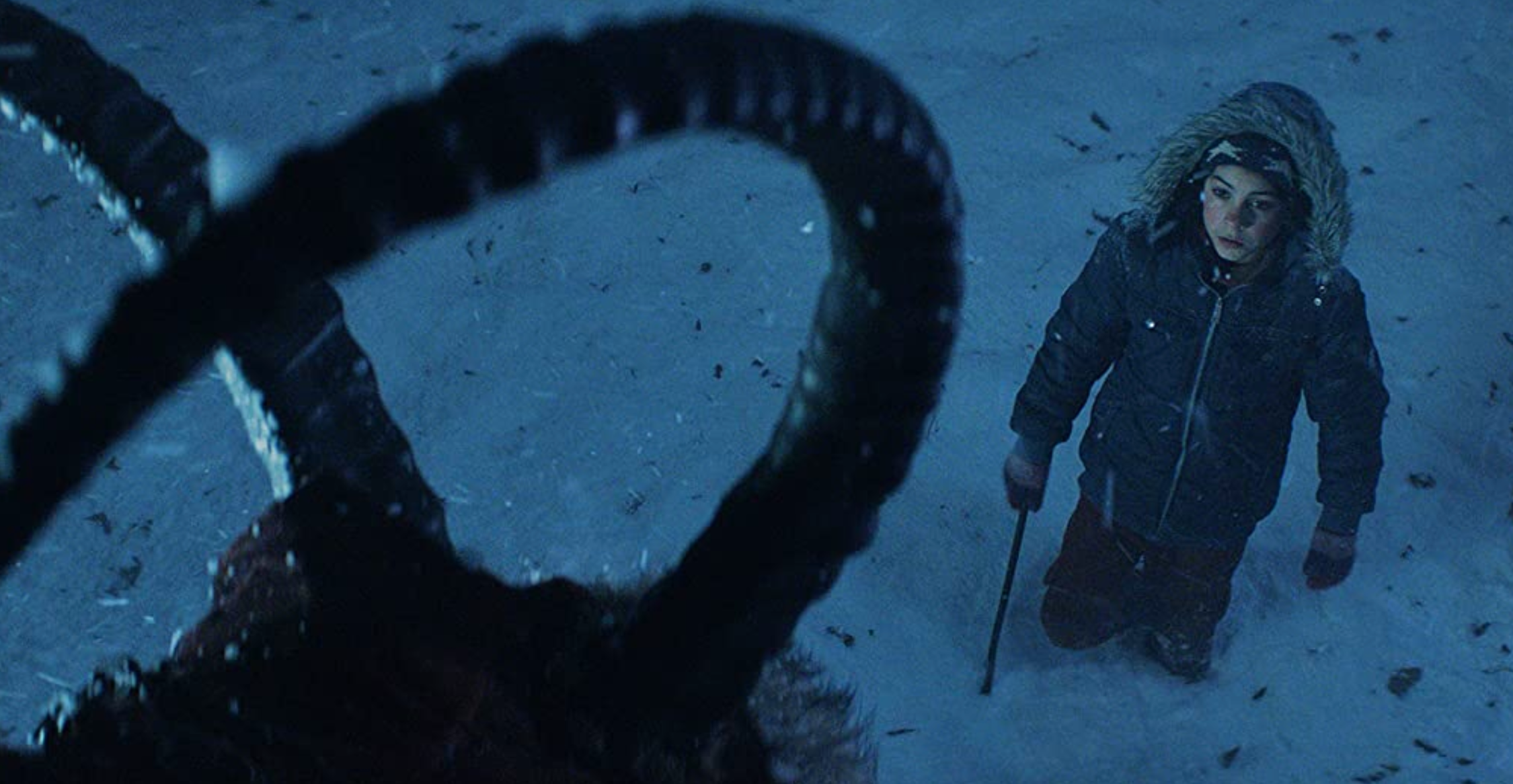
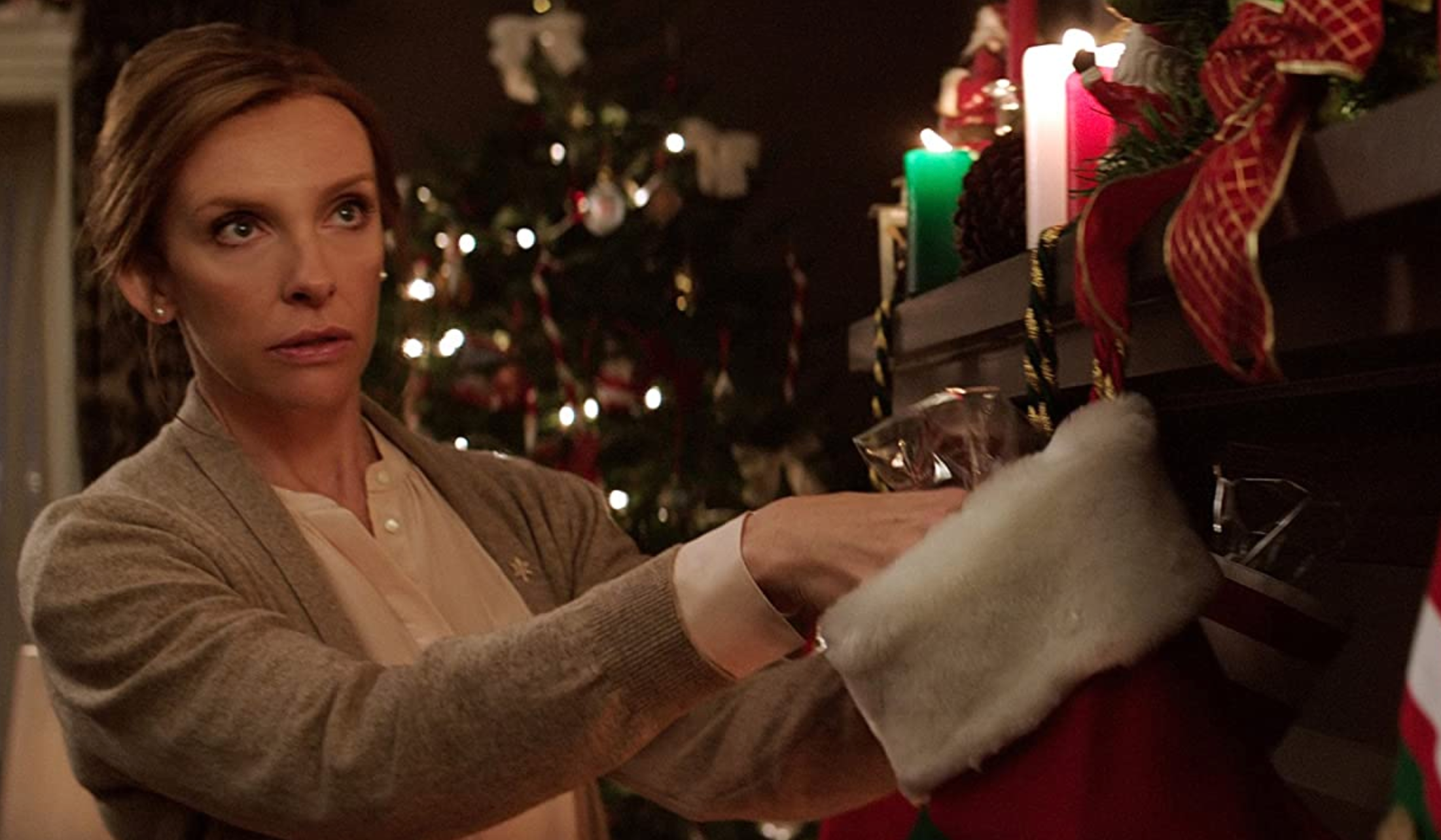
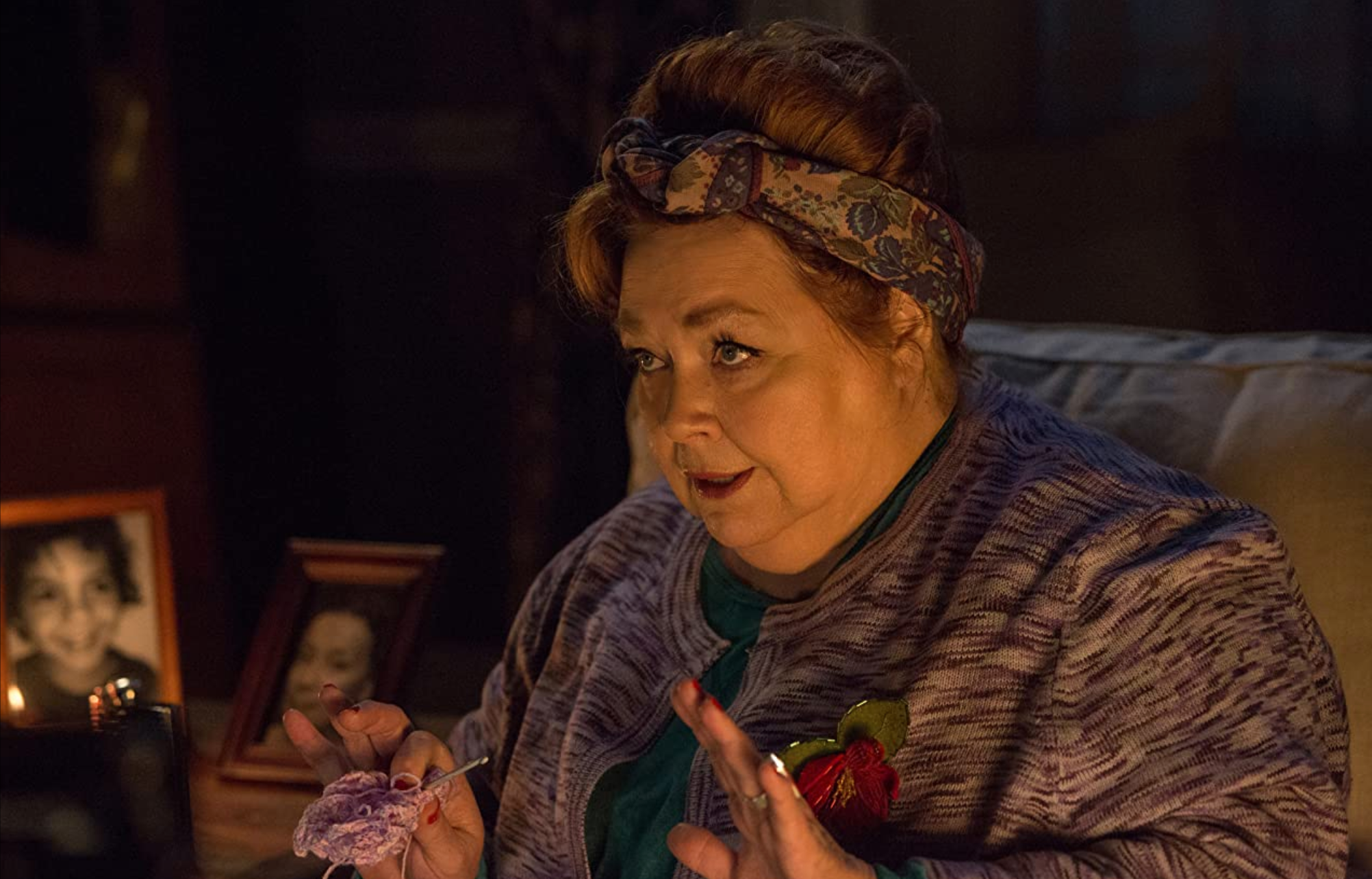
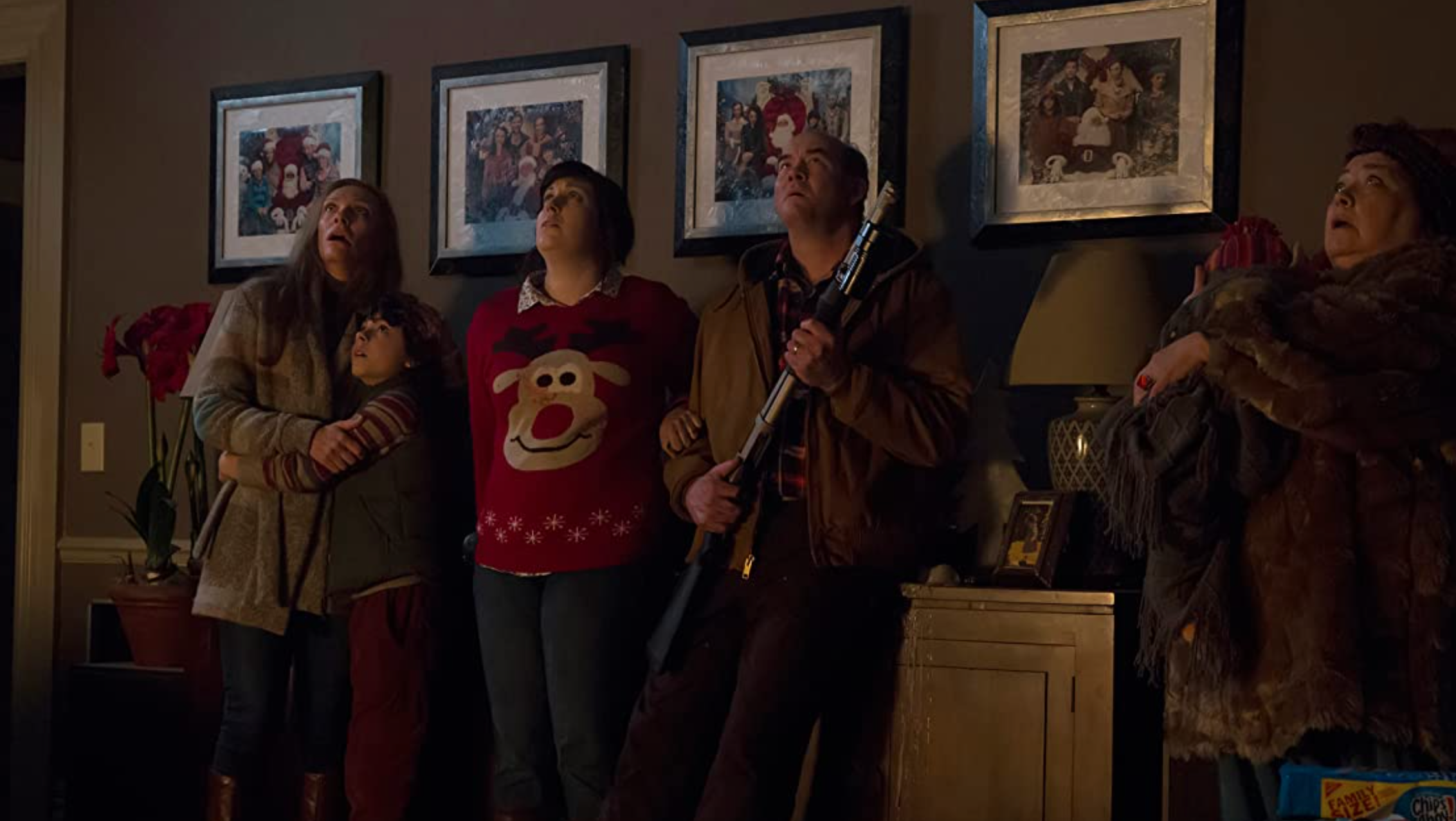
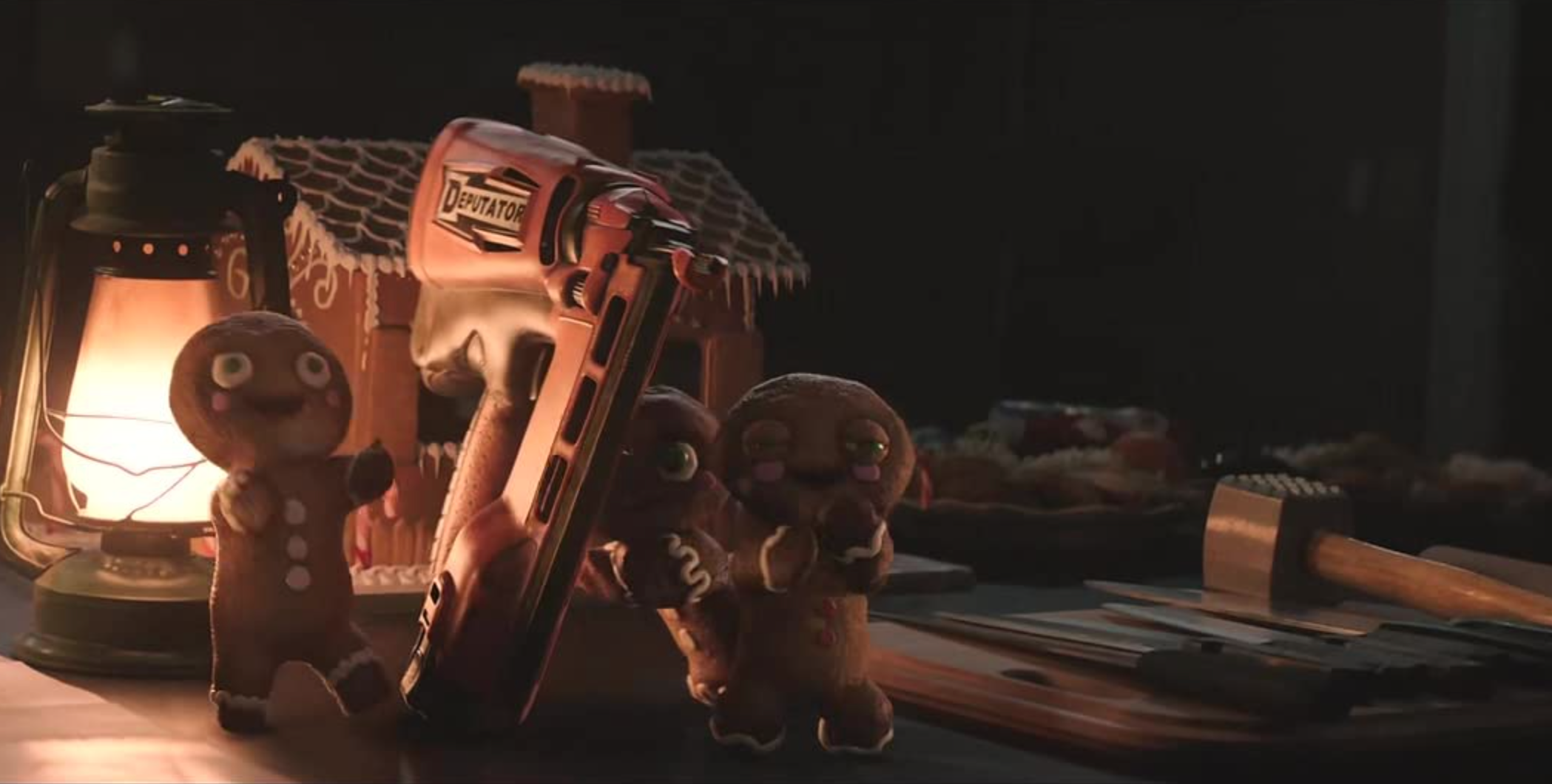
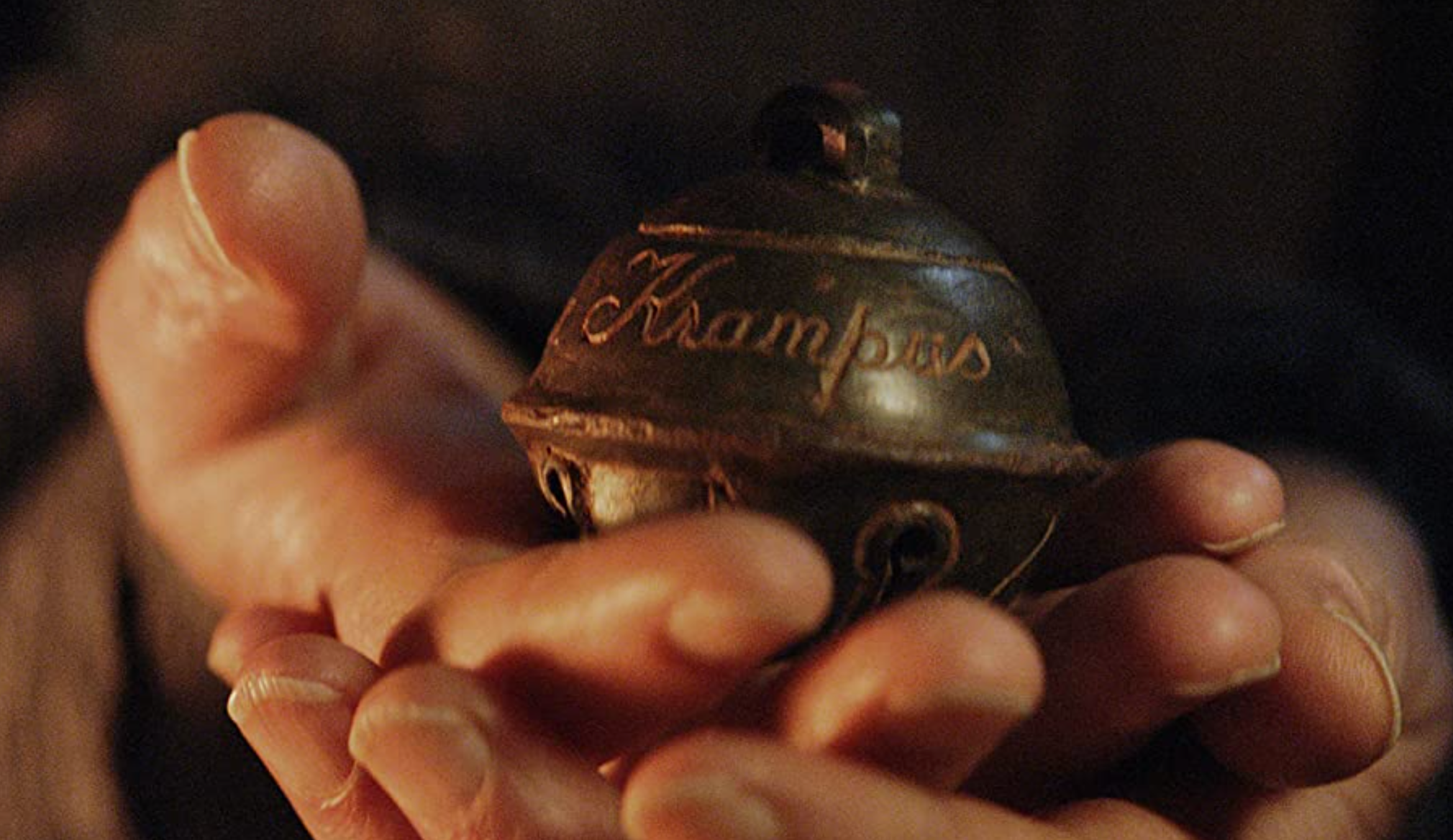
![[Editorial] 5 Slasher Short Horror Films](https://images.squarespace-cdn.com/content/v1/5fe76a518d20536a3fbd7246/1696358009946-N8MEV989O1PAHUYYMAWK/Screenshot+2023-10-03+at+19.33.19.png)
![[Ghouls Podcast] Maniac (2012) with Zoë Rose Smith and Iona Smith](https://images.squarespace-cdn.com/content/v1/5fe76a518d20536a3fbd7246/1696356006789-NYTG9N3IXCW9ZTIJPLX2/maniac.jpg)
![[Editorial] If Looks Could Kill: Tom Savini’s Practical Effects in Maniac (1980)](https://images.squarespace-cdn.com/content/v1/5fe76a518d20536a3fbd7246/1694952175495-WTKWRE3TYDARDJCJBO9V/Screenshot+2023-09-17+at+12.57.55.png)
![[Editorial] Deeper Cuts: 13 Non-Typical Slashers](https://images.squarespace-cdn.com/content/v1/5fe76a518d20536a3fbd7246/1694951568990-C37K3Z3TZ5SZFIF7GCGY/Curtains-1983-Lesleh-Donaldson.jpg)
![[Editorial] Editor’s Note: Making a slash back into September](https://images.squarespace-cdn.com/content/v1/5fe76a518d20536a3fbd7246/1694354202849-UZE538XIF4KW0KHCNTWS/MV5BMTk0NTk2Mzg1Ml5BMl5BanBnXkFtZTcwMDU2NTA4Nw%40%40._V1_.jpg)
![[Editorial] 8 Mind Horror Short films](https://images.squarespace-cdn.com/content/v1/5fe76a518d20536a3fbd7246/1693504844681-VPU4QKVYC159AA81EPOW/Screenshot+2023-08-31+at+19.00.36.png)
![[Editorial] Eat Shit and Die: Watching The Human Centipede (2009) in Post-Roe America ](https://images.squarespace-cdn.com/content/v1/5fe76a518d20536a3fbd7246/1691245606758-4W9NZWE9VZPRV697KH5U/human_centipede_first_sequence.original.jpg)
![[Editorial] Top 15 Female-Focused Mind Horror Films](https://images.squarespace-cdn.com/content/v1/5fe76a518d20536a3fbd7246/1691247166903-S47IBEG7M69QXXGDCJBO/Image+5.jpg)
![[Editorial] 8 Body Horror Short films](https://images.squarespace-cdn.com/content/v1/5fe76a518d20536a3fbd7246/1690838270920-HWA5RSA57QYXJ5Y8RT2X/Screenshot+2023-07-31+at+22.16.28.png)
![[Editorial] Metal Heart: Body Dysmorphia As A Battle Ground In Tetsuo: The Iron Man (1989)](https://images.squarespace-cdn.com/content/v1/5fe76a518d20536a3fbd7246/1690190127461-X6NOJRAALKNRZY689B1K/Screenshot+2023-07-24+at+10.08.27.png)
![[Editorial] Top 15 Female-Focused Body Horror Films](https://images.squarespace-cdn.com/content/v1/5fe76a518d20536a3fbd7246/1689081174887-XXNGKBISKLR0QR2HDPA7/download.jpeg)
![[Editorial] Editor’s Note: Getting sticky, slimy & sexy with body horror](https://images.squarespace-cdn.com/content/v1/5fe76a518d20536a3fbd7246/1689072388373-T4UTVPVEEOM8A2PQBXHY/Society-web.jpeg)
![[Ghouls Podcast] The Last House on the Left (2009) with Zoë Rose Smith and Jerry Sampson](https://images.squarespace-cdn.com/content/v1/5fe76a518d20536a3fbd7246/1687863043713-54DU6B9RC44T2JTAHCBZ/last+house+on+the+left.jpg)
![[Editorial] They’re Coming to Re-Invent You, Barbara! Night of the Living Dead 1968 vs Night of the Living Dead 1990](https://images.squarespace-cdn.com/content/v1/5fe76a518d20536a3fbd7246/1687199945212-BYWYXNBSH00C4V3UIOFQ/Screenshot+2023-06-19+at+19.05.59.png)
![[Editorial] 8 Short & Feature Horror Film Double Bills](https://images.squarespace-cdn.com/content/v1/5fe76a518d20536a3fbd7246/1687770541477-2A8J2Q1DI95G8DYC1XLE/maxresdefault.jpeg)

![[Editorial] Soho Horror Film Festival: Interview with Aimee Kuge on Cannibal Mukbang](https://images.squarespace-cdn.com/content/v1/5fe76a518d20536a3fbd7246/1701808004722-9M8SZ2UXY52QBQBR4NTI/img20230818_15150780.JPG)
![[Editorial] 10 Films & Events to Catch at Soho Horror Film Fest 2023](https://images.squarespace-cdn.com/content/v1/5fe76a518d20536a3fbd7246/1700819417135-299R7L4P0B676AD3RO1X/Screenshot+2023-11-24+at+09.41.52.png)
![[Editorial] 9 Horror Nintendo Switch Games To Play](https://images.squarespace-cdn.com/content/v1/5fe76a518d20536a3fbd7246/1697214470057-3XZXX8N4LYIMDFWS6Z3P/Screenshot+2023-10-13+at+17.20.13.png)
![[Mother of Fears] Mothering in Silence in A Quiet Place (2018)](https://images.squarespace-cdn.com/content/v1/5fe76a518d20536a3fbd7246/1696445921315-HZJ2DZYQIH6VVWXBO2YL/Screenshot+2023-10-04+at+19.52.29.png)
![[Event Review] Highlights from Mayhem Film Festival 2023](https://images.squarespace-cdn.com/content/v1/5fe76a518d20536a3fbd7246/1697624582491-MPT2VB9RRGU6OG7L6UKL/Mayhem+2023.jpg)
![[Editorial] Mayhem Festival: Interview with Thomas Sainsbury on Loop Track (2023)](https://images.squarespace-cdn.com/content/v1/5fe76a518d20536a3fbd7246/1697186472899-WC4RR0TW7L7LMFEBGPA2/Tom+Sainsbury.jpg)
![[Editorial] Keeping Odd Hours: A Retrospective on Near Dark (1987)](https://images.squarespace-cdn.com/content/v1/5fe76a518d20536a3fbd7246/1696445070868-HU9YIL3QPBCL1GW47R3Z/Screenshot+2023-10-04+at+19.36.53.png)
![[Editorial] 5 Female Focused Horror Book Recommendations](https://images.squarespace-cdn.com/content/v1/5fe76a518d20536a3fbd7246/1696441981361-52EQCTJ7AT2QF1927GM7/919xtm6d3fL._AC_UF894%2C1000_QL80_.jpg)
![[Editorial] What to Watch at This Year's Cine-Excess International Film Festival 2023](https://images.squarespace-cdn.com/content/v1/5fe76a518d20536a3fbd7246/1697213510960-REV43FEOZITBD2W8ZPEE/Screenshot+2023-10-13+at+17.01.15.png)
![[Editorial] Cherish Your Life: Comfort in the SAW Franchise Throughout and Beyond the COVID-19 Pandemic](https://images.squarespace-cdn.com/content/v1/5fe76a518d20536a3fbd7246/1695487675334-MYPCPYYZQZDCT548N8DI/Sc6XRxgSqnMEq54CwqjBD5.jpg)
![[Editorial] The Art of Horror in Metal](https://images.squarespace-cdn.com/content/v1/5fe76a518d20536a3fbd7246/1695486401299-E5H2JNNJT26HKN0CI7WC/Screenshot+2023-09-23+at+17.20.28.png)






















![[Editorial] 9 Best Slashers Released Within 10 Years of Scream (1996)](https://images.squarespace-cdn.com/content/v1/5fe76a518d20536a3fbd7246/1695478839037-LOFHGVM3H6BMSZW7G83M/Screenshot+2023-09-23+at+15.15.11.png)
![[Mother of Fears] Mother Vs. Monster in Silent Hill (2006)](https://images.squarespace-cdn.com/content/v1/5fe76a518d20536a3fbd7246/1695485781119-H6GNP0G3J2TLPAOIABV7/Screenshot+2023-09-23+at+17.11.56.png)
![[Editorial] 9 Terrifying Cerebral Visions in Horror Movies](https://images.squarespace-cdn.com/content/v1/5fe76a518d20536a3fbd7246/1693509801235-X23OL50T1DVGECH0ZJK2/MV5BMjQ0MTg2MjQ4MV5BMl5BanBnXkFtZTgwMTU3NDgxMTI%40._V1_.jpg)
![[Mother of Fears] I Don’t Wanna Be Buried in a Pet Sematary (1989) and (2019)](https://images.squarespace-cdn.com/content/v1/5fe76a518d20536a3fbd7246/1691328766069-QFNAVJOMFZVZ5CLU1RWM/Screenshot+2023-08-06+at+14.23.13.png)

I can sometimes go months without having a panic attack. Unfortunately, this means that when they do happen, they often feel like they come out of nowhere. They can come on so fast and hard it’s like being hit by a bus, my breath escapes my body, and I can’t get it back.